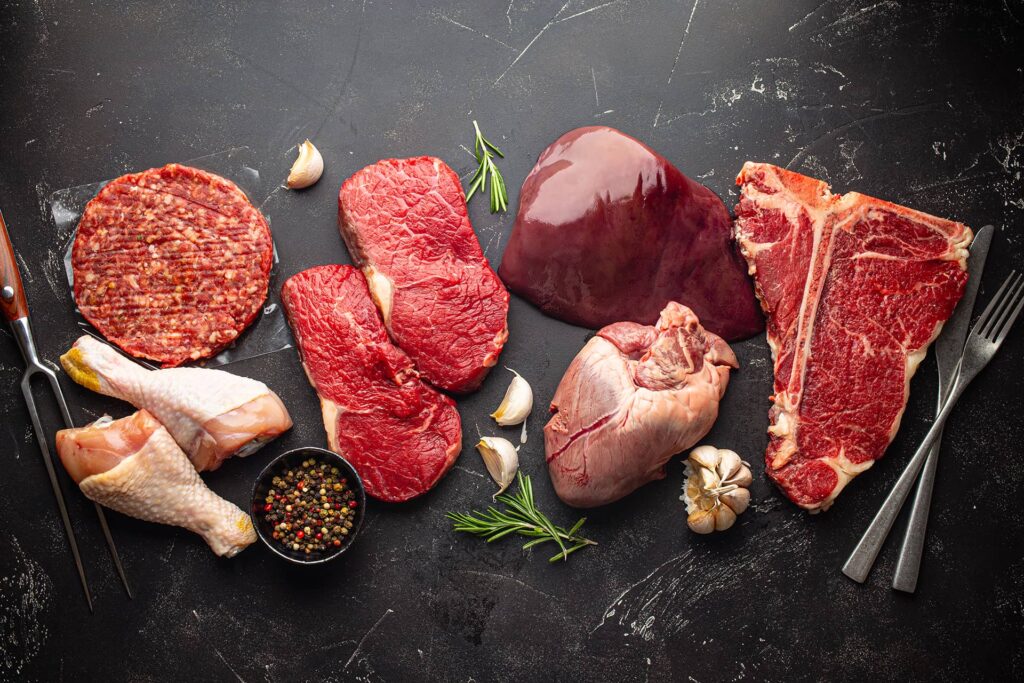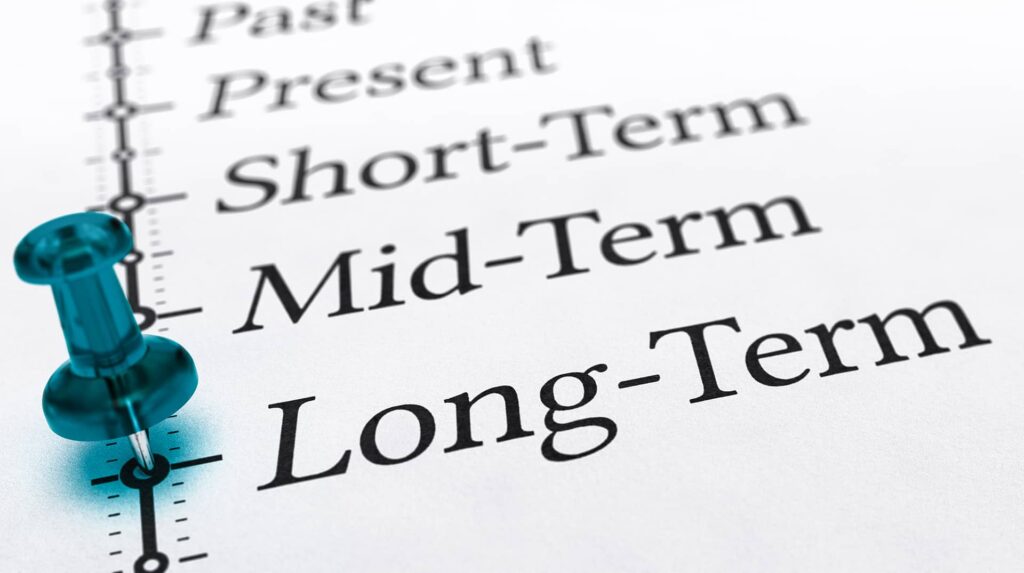Carnivore Healthy Weight Loss:
A how-to guide
Achieving Healthy Weight Loss with a Carnivore Diet: A Comprehensive Guide

Losing weight can be a daunting task, especially when it feels like you’re constantly battling hunger and willpower. Many diets rely on sheer determination, but this approach often proves unsustainable over time. The key to successful, healthy weight loss is adopting a sustainable strategy that minimizes deprivation, promotes metabolic health, and prioritizes essential nutrition.
In this guide, we will explain some of the principles and practices that lead to healthy and sustainable weight loss. From the best foods to eat to what to avoid, we will explore the common mistakes individuals make on their weight loss journeys, how to reduce calorie intake without feeling hungry, and much more. But before we dive into the specifics, let’s define what “healthy weight loss” truly means.
Defining Healthy Weight Loss
Healthy weight loss begins with setting realistic goals and focuses on shedding fat mass rather than lean body mass. It aims to improve metabolic health, prevent a significant decline in your resting metabolic rate, and promote a dietary lifestyle that can be maintained over the long term. However, achieving these goals can be challenging, as the modern food environment often works against our best intentions. Nevertheless, there are proven strategies to attain a healthy weight and sustain metabolic health.
Top 10 Weight Loss Tips
- Avoid Combining Carbs and Fat: Consuming foods high in both carbohydrates and fat can lead to excessive calorie intake and increased cravings.
- Prioritize Protein: Meat, eggs, and seafood can help you optimize your protein intake. This is important, as these foods contain a high concentration of critical nutrients and can help effectively end hunger.
- Limit Total Carbs: To maximize weight loss, restrict total carbs to less than 20 grams. This is easy, if you’re only eating meat, eggs, and seafood. Your carbs may come from any dairy products you add, as well as hidden carbs in sauces and seasonings. Be on the lookout for these sneaky carbs, because they add up quickly.
- Moderate Your Fat Intake: Enjoy the taste of fat but don’t overdo it. It’s essential for long-term success, and can improve satiety, but excessive fat can add unnecessary calories.
- Prioritize Protein and Fat When Hungry: If you’re hungry, start by adding more protein and fat to your meal. These two macronutrients trigger eating satisfaction and end hunger very effectively.
- Find Meats You Enjoy: Discover meats that align with the above criteria and fit your taste preferences.
- Avoid being Sedentary: While you don’t need to become a top CrossFit competitor, building a physically active lifestyle, when combined with a carnivore diet, can help speed and maintain fat loss while preserving muscle mass.
- Prioritize Restorative Sleep: Quality sleep is crucial for overall health, including weight management.
- Create a Supportive Environment: Set yourself up for success by shaping your surroundings to promote healthy eating. Making sure that you’re surrounded only by foods you should eat is a great start. Don’t test your will by looking at foods you shouldn’t eat all day long.
- Choosing the Right Foods for Healthy Weight Loss Healthy weight loss doesn’t require calorie counting but focuses on selecting foods that provide maximum nutrition per calorie. You can achieve this easily with a carnivore diet, focusing on meat, seafood, and eggs.

Carnivore Foods Provide the Most Nutrition per Calorie:
- Meat and poultry
- Seafood
- Eggs
- Dairy products like heavy cream or sour cream
The Role of High Protein for Weight Loss

To achieve healthy weight loss with high nutrition, consider the following:
- Reduce Carbohydrate Intake: Lowering carbohydrate intake can lead to better weight loss and blood sugar control.
- Prioritize Protein and Fats: Aim to consume adequate protein and fats
- A carnivore diet allows you to meet both of these goals in the simplest way possible
The Benefits of Carnivore for Weight Loss
Intermittent Fasting for Weight Loss
Intermittent fasting, which involves intentional periods without caloric intake, has gained popularity as a healthy and sustainable approach to weight loss. Studies indicate that short-term intermittent fasting can reduce calorie consumption, improve weight loss, and enhance metabolic health.
However, the success of intermittent fasting depends on various factors, including meal timing, caloric intake during eating windows, and individual response. Intermittent fasting can be a tool to reduce calorie intake, preserve resting metabolic rate, and improve metabolic health. Intermittent fasting should not be used on a carnivore diet during the adaptation phase, but only considered after becoming either fat-adapted or keto-adapted.
Intermittent fasting should be considered a “more advanced” strategy, and it should not be used while taking blood sugar medications. The combination of intermittent fasting and glucose-lowering medications such as injectable insulin can drive blood sugar levels dangerously low.
Eating Fewer Calories Without Deprivation
Promoting Metabolic Health

Improving metabolic health is a critical aspect of healthy weight loss. Metabolic health goes beyond avoiding diseases; it involves optimizing factors like insulin sensitivity, blood pressure, blood glucose, triglycerides, and cholesterol levels.
To enhance metabolic health, consider the following:
- Limit Carbs: Especially refined starches and sugars, which can lead to overeating and adverse metabolic effects. A carnivore diet makes this simple to accomplish.
- Adequate Protein: Higher protein diets improve insulin sensitivity and contribute to metabolic health. Again, a carnivore diet is perfect for this goal.
- Moderate Fat Intake: Excessive fat intake, particularly when combined with carbs, can worsen insulin resistance and metabolic health. Eating fatty cuts of meat on a carnivore diet provides an optimized macronutrient ratio.
- Lifestyle Factors: Manage stress, prioritize quality sleep, and engage in regular physical activity to promote metabolic health.
- Time-Restricted Eating: Incorporate time-restricted eating or intermittent fasting to allow for lower insulin levels and improved metabolic health. If you’re taking blood sugar medications, though, be careful with intermittent fasting. Keep a close watch on your blood sugar, as it may go too low. If that happens at night or while you’re driving, it can of course be particularly dangerous.
Measuring Weight Loss

Tracking weight loss involves more than just checking the number on the bathroom scale. It’s crucial to consider other indicators, such as:
- Waist Measurement and Waist-to-Height Ratio: These measurements can provide valuable insights into fat loss and metabolic health.
- Clothing Fit: Pay attention to how your clothes fit, as looser clothing may indicate a reduction in waist size and improved body composition.
- Body Composition Analysis: Using tools like bioimpedance scales or DEXA scans can offer a more comprehensive assessment of your weight loss progress, including evaluating your total muscle mass vs. your total fat.
Overcoming a Weight Loss Plateau

Weight loss rarely occurs in a linear fashion and often involves plateaus. Breaking through plateaus may require adjusting your approach. Here are seven tips to help you overcome a weight loss plateau:
- Assess Protein Intake: Ensure you’re consuming enough protein by measuring your daily intake and increasing it if necessary. If you’re eating a strictly carnivore diet, and eating to satiety so that you’re not staying hungry, your protein needs should easily be met.
- Limit Non-Nutrient Calories: Identify and reduce non-nutrient sources of calories, such as sugary condiments. Skipping the barbecue sauce on your pulled pork, for example, can cut a lot of calories and sugars.
- Address Cravings and Snacking: Choose high-protein and fatty snacks, differentiate true hunger from boredom, and consider eliminating sweeteners that trigger cravings.
- Prioritize Sleep: Poor sleep can hinder weight loss. Establish a healthy sleep routine for better results.
- Exercise Wisely: Engage in physical activity that builds muscle and supports your weight loss goals without excessive hunger.
- Explore Time-Restricted Eating: Time your meals strategically to reduce calorie intake and lower insulin levels.
- Avoid Over-Fasting: If fasting leads to binge-eating or overconsumption, return to a regular eating schedule for better portion control.
Maintaining Weight Loss Long Term

Sustaining weight loss can be challenging, but it’s achievable with the right approach. Consider the following tips for long-term success:
- Connect with Your Motivation: Keep your reasons for maintaining weight loss, your “why,” at the forefront of your mind.
- Establish Accountability: Use a partner, coach, app, or calendar to create accountability.
- Control Your Environment: Remove temptations from your surroundings to reduce the likelihood of making poor food choices.
- Adopt a Lifestyle Mindset: Changing your perspective from “I’m on this diet” to seeing carnivore as your new lifestyle.
- Enjoy the Journey: Find recipes that align with your eating pattern and bring joy to your meals.
- Celebrate Small Wins: Acknowledge and celebrate your successes, no matter how minor they may seem.
- Accept Imperfection: Recognize that occasional deviations from your plan are normal and shouldn’t derail your progress.
- Optimize Sleep, Stress Management, and Physical Activity: Implement strategies to enhance these lifestyle factors for long-term, healthy weight maintenance.
Conclusion
Healthy weight loss isn’t just about shedding pounds; it’s about improving metabolic health, preserving lean body mass, and making sustainable dietary choices. By emphasizing fatty meat, along with other lifestyle adjustments, you can embark on a carnivore diet journey to achieve and maintain a healthy weight. Keep in mind that weight loss is a process, and plateaus are a natural part of that journey. With the right strategies and a commitment to long-term success, you can attain your weight loss goals while enjoying the process.
Help others regain health using the carnivore diet!

Reviewed & approved by
Dr. Shawn Baker, MD & Carnivore.Diet team.
